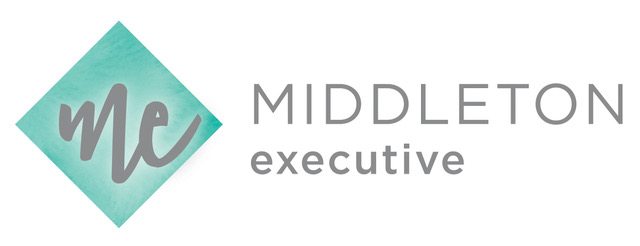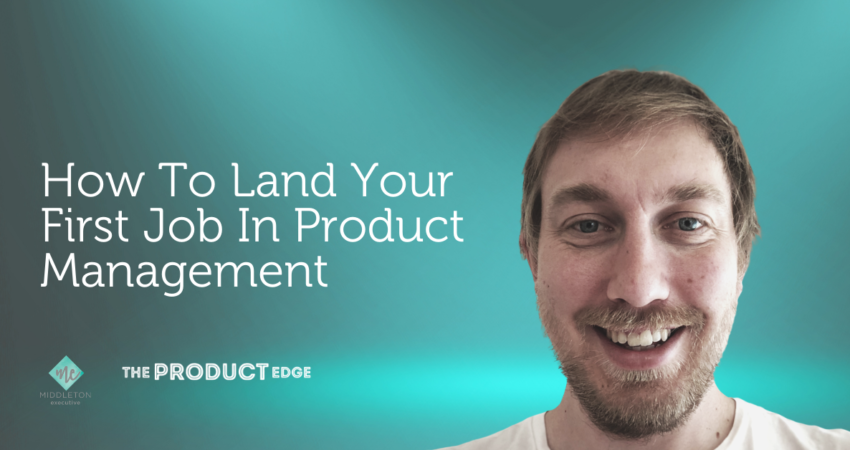Just like many professions, companies looking to hire Product professionals often seek to hire people with prior experience. Of course, from a jobseeker’s perspective, one can argue that it’s hard to get prior experience without first getting hired. Landing a job in Product Management can be a bit like a chicken or egg situation, and how can someone seeking a career in Product Management actually break in?
First, let’s talk about what a Product Manager actually does.
A Product Manager is responsible for identifying the customer’s needs and the business objectives that a particular product will fulfill. It’s part knowledge, part creativity, and strong leadership thrown into the mix. This means lots of highly qualified people may also be interested in the position.
If you’ve made it this far, chances are you’re really thinking about jump-starting your career in Product Management. Middleton Executive’s Jade Bennett caught up with seasoned product leader and Founder of Paul Napper Web Designs, Paul Napper, on a recent episode of her podcast: The Product Edge. Here’s some of what he had to say about landing a job in Product.
Jade: What do you think makes a great Product Manager?
Paul: I think it’s someone who can distill a lot of information from multiple areas. You need to also have a lot of empathy for the other roles within departments and the different capabilities of the people around you.
The best way for people to look at getting into Product Management is to learn how hard it is to make a sale over the phone. Learn how to sit in support for a while and see what people have to go through. Build up that kind of empathy towards those roles as well. And when you’re starting to deal with people in different ways, it’ll then become second nature to understand what they’re going through. You’ve got to be the one that is confident enough to make the calls and the tough decisions. Prioritisation is just one of those things that you have to do.
This has been said over and over in different ways, but you got to be good at communicating and articulating the story – the vision of where you’re going.
Jade: Do you think companies focus too much on some of the technical components of what a Product Manager needs as opposed to somebody that does have strong empathy and those softer skills?
Paul: I think yes, in some cases. I’ve had really strong commercial Product Managers pick up the technical capabilities within a matter of weeks. It’s great to have someone with fresh eyes. We all have different skill sets that we kind of lean towards and I think almost bringing people in who haven’t got that technical capacity is a good thing, sometimes. They’re like, “Why are you doing it this way?” It’s almost like a fresh set of eyes on situations.
It’s great to have a good understanding of what you’re going into. The different technologies, different UX capabilities so that you can make a conversation a lot easier. Some of the best Product Managers haven’t had a technical background at all.
Jade: What advice would you have for people wanting to land that first role in Product? What are some of the things they could be working on or doing to achieve that?
Paul: I think you have to stand out. You have to be different. It’s almost like you get a similar story all the way through. What people are looking for is not only your competency to do the job, it’s also the commitment as well.
So how can you show that you really want this job? Have you done the research on the actual company? What are your own personal beliefs or your own values? What bugs have you found? What would you improve?
There’re so many questions, they’re almost basic things but it shows if you’re really committed. You’ve done some research before and you’re thinking about the industry.
Jade: What would be the things that they should research to land the job?
Paul: So just getting the real basics and doing a bit of background research on what a Product Manager does itself. Practice those skills. You could do it with your friends. You could do it with your family. If you really wanted to, try to do it on a real problem that you’re working on, go ahead and you’ll find that you build up these skill sets really, really quickly.
Jade: What are your thoughts on getting yourself a mentor?
Paul: Yeah, look, I love the notion of a mentor kind of keeping you in check and helping you advance. I think it’s a great idea. What I do personally is meet up with some of the people that I think are the best within their industry, who are ahead of the game. In a lot of senses, I would prefer spending my time meeting up with lots of those people. To give you an example, Peter Wallace, an amazing architect keeps up to date with anything and everything that’s going on with Apple. Lucky for me, I don’t have to spend lots of money learning about all those things. I catch up with Peter for an hour. I think having a mentor or a friend to talk to is great.
Jade: Do you think that starting off your career as a Product Owner, and then progressing to a Product Manager is a better career path? Is there a difference?
Paul: Yeah, probably even bigger than that is the difference between the type of organisation that they’re starting with. If you’re a Product Owner or a Product Manager within a startup, you’re going to be doing 50 different things; a completely different set up to whether it’s a corporate environment. And it’s not always a straight line.
As I said before, we had someone in our team who was amazing at the commercial side of things and was just looking to round out his technical knowledge. There are others who are fantastic with their presentation, and they have persuasive skills but still need to learn the other commercial aspects at a deeper level.
Jade: So somebody lands their first role as a Product Owner or Product Manager, what can they expect from their first role?
Paul: First of all, you won’t know about this subject matter. More than likely, you’ll really have to learn, and that’s OK! Most companies are okay with that. One of the biggest things is, don’t try to be that expert. First of all, know the people that you’re working with and really know them well – what their bugbears and pain points are. The best thing that someone’s probably told me during my journey is just to be absorbent like a sponge. In the first few months and weeks, you’re just absorbing all the information. Just understand how the organisation works, and how the people within that organisation work.
Jade: What do you think about the ability to say no, or perhaps challenge something?
Paul: It is a hard skill you’ve got to kind of develop over time. And I think, like a Product Manager, your role is to find the evidence and the analytics and everything else to back up your case.
A lot of the time you’re dealing with people, you are dealing with emotions, and you’ve got to guide them through that whole process. What you have to understand is that you will have to deal with a lot of ambiguity and that sort of thing is part of being a Product Manager. That’s just part and parcel of what you have to deal with.
Jade: What’s it really like in that startup space?
Paul: Everyone thinks it’s easy, right? And to be honest, if you go and watch the movie called The New Hustle, it does lift the lid on things. Working in terms of the startup space, you have to have a natural risk profile around you. As an entrepreneur, you have to be willing to take more risks. The ones built to be successful are the ones that are willing to take a lot of risks. Any organisation needs a balance of people with different sets of groups and personalities.
But if you’re a Product Manager that’s about to go into a startup or into a scale-up or a corporation, it’s worth thinking about what is your natural style.
Jade: What would be one piece of advice you would like to share with aspiring Product Managers?
Paul: Do something. Work towards a product that is going to change and make people’s lives better. Something that’s good for the world. Something that is beneficial and gives purpose and value. I think it makes work and life more rewarding.
To listen to this podcast episode in full, subscribe or listen to The Product Edge on your preferred podcast app.
If you’re looking for more resources or information about all things Product, check out The Product Edge or follow on LinkedIn, Facebook, Instagram, or Twitter.

